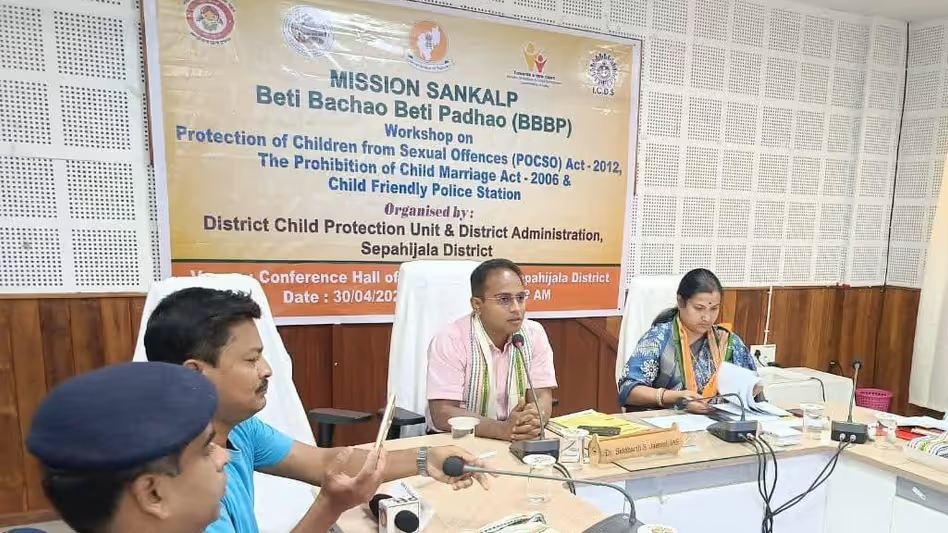Ten villages in the border district of Sepahijala in Tripura have been recognised for their efforts to prevent child marriages and promote education, marking a significant milestone in the state’s fight against underage marriages. The villages have received the ‘Aspiring Child Marriage Free’ certification under the government’s Mission Sankalp initiative, which targets child marriage and teenage pregnancy in the district.
District Magistrate Siddharth Shiv Jaiswal highlighted the structured approach behind the recognition program, which operates through a three-tier certification system based on the duration without reported child marriages. Villages must maintain six months without incidents to qualify for the bronze category, 12 months for the silver category, and 24 months for the gold category.
The certification process involves a verification process where declarations are submitted by the Gram Pradhan to block development offices, reviewed by administrative levels including sub-divisional magistrates and task forces, before final district-level approval.
The ten certified villages span three rural development blocks across Sepahijala, with Jampuijala block leading with five villages, Charilam block contributing two villages, and Nalchar block adding three villages to the list. The district’s proactive stance against child marriage is particularly significant due to its border location with Bangladesh, which presents unique challenges that are addressed through community engagement and monitoring systems.
The District Administration plans to continue encouraging villages to aspire for higher categories of recognition by maintaining sustained efforts against child marriage, emphasizing the program’s long-term vision. The Mission Sankalp initiative combines administrative oversight with grassroots participation, aiming to create lasting behavioural changes within communities rather than short-term interventions.
Officials expect more villages to seek certification as awareness spreads about the program’s requirements and benefits. The tiered system provides clear benchmarks for communities while offering progressive recognition for sustained efforts in preventing child marriages and promoting education.

